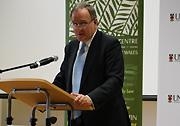A fresh start for Indigenous women leaving prison
With Indigenous women making up almost a third of female inmates in NSW, UNSW researchers are working to break the cycle of social disadvantage which leads to ongoing high rates of incarceration.
With Indigenous women making up almost a third of female inmates in NSW, UNSW researchers are working to break the cycle of social disadvantage which leads to ongoing high rates of incarceration.

With Indigenous women making up almost a third of female inmates in NSW, UNSW researchers are working to break the cycle of social disadvantage which leads to ongoing high rates of incarceration.
A new report calls for culturally-appropriate housing for women and their children to help prevent these women being sent back to jail.
"Another reason we are focusing on supporting Aboriginal women with children is to address intergenerational imprisonment," says the report's author, Associate Professor Eileen Baldry from the Faculty of Arts and Social Sciences .
"If an Indigenous child has a parent in jail, there's a higher likelihood that they will also go to jail. A vicious cycle is created," she says.
Previous research shows that upon release Aboriginal women have higher rates of social disadvantage, less support and are more likely to return to prison.
"There is a disconnection between the needs of Aboriginal women with dependent children leaving prison and the style and availability of current services," says Professor Baldry from the School of Social Sciences and International Studies.
The report also suggests that the re-integration of the women into life outside of prison needs to be guided by the women's needs.
"The service needs to start the minute they go into prison," says Professor Baldry. "This service needs to have a seamless connection between prison and the community support agency where women and their children can be supported to build positive futures."
Professor Baldry's report Aboriginal Women and Dependent Children Leaving Prison Needs Analysis was funded by Homelessness NSW. The report was launched by NSW Community Services Minister Kevin Greene.
Media Contact: Susi Hamilton | 0422 934 024 | susi.hamilton@unsw.edu.au